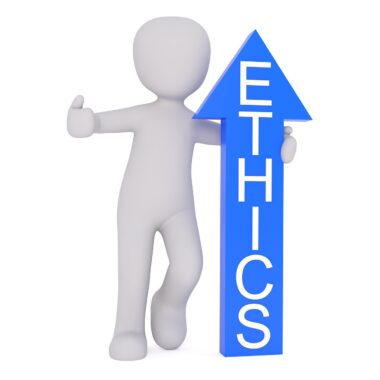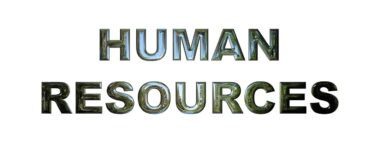The Role of Ethics in Conflict Resolution within HR
In any organization, disputes are bound to arise among employees due to various factors such as misunderstandings, competition, and differing values. When conflicts surface, the role of ethics becomes crucial in Human Resource Management (HRM). Understanding the importance of ethical principles in conflict resolution can lead to a more harmonious workplace. Ethical frameworks guide HR practitioners in navigating disputes with integrity and fairness. For instance, being transparent in conflict resolution processes fosters trust among employees. Furthermore, employing an ethical approach allows HR professionals to address not only the surface issues but also the underlying causes of the conflict. To do so, HR must actively listen to both parties and remain impartial, ensuring that all viewpoints are considered. This ethical commitment creates an environment where employees feel respected and valued. Moreover, the implementation of ethical conflict resolution practices promotes a positive organizational culture. It instills shared values, ultimately uniting employees in pursuing common goals. The importance of ethical principles in resolving workplace conflicts cannot be overstated, as it lays the foundation for sustainable employee relations.
Effective conflict resolution hinges on HR’s ability to execute a structured, ethical approach. Firstly, HR professionals should develop a clear policy outlining the steps for handling conflicts. This policy serves as a roadmap for employees to follow when disputes arise, ensuring they understand the procedures, outcomes, and those responsible for mediation. Consistency in conflict resolution fosters a sense of fairness among employees. Additionally, HR must provide adequate training on ethical decision-making for all staff involved in conflict resolution. This training resource equips employees with the necessary tools to engage in dialogues that prioritize ethical considerations, thus preventing potential escalations. Another aspect is the establishment of an unbiased conflict resolution team. Having a dedicated team enables focus on resolving issues without favoritism or preconceived notions. Furthermore, employees should be encouraged to report unethical behavior or injustices they encounter during the process. This create channels for open dialogue between employees and HR departments. Ethically addressing conflicts not only mitigates immediate issues but also strengthens overall team cohesion and enhances organizational performance.
Benefits of Ethical Conflict Resolution
Implementing ethical conflict resolution strategies provides numerous advantages, enhancing the workplace’s overall climate and culture. For instance, resolving disputes through ethical means can prevent further escalation, which in turn saves time and resources. Many conflicts, if left unresolved, can linger and cultivate a toxic environment, harming productivity. Ethical practices in managing conflicts ensure that employees feel heard and valued, empowering them to express their concerns without fear of retaliation. Consequently, this encourages open communication, essential for effective teamwork. Additionally, when organizations prioritize ethics, they are more likely to retain talented employees. Individuals prefer to work for companies that are committed to ethical principles, knowing that their well-being is a priority. Furthermore, ethical conflict resolution builds a positive reputation for the organization, attracting new talent and clients. Maintaining an ethical approach establishes credibility and trust. When employees witness fairness in conflict resolution, a culture of respect and integrity develops across departments. These benefits illustrate how essential ethical considerations are for successful HR practices and overall organizational health.
Moreover, success in conflict resolution within HR also depends on developing strong relationships among team members. Trust is a vital component of effective conflict management, as it enables open communication. HR professionals can foster trust by actively engaging with employees, recognizing their contributions, and advocating for their needs. Additionally, promoting team-building activities helps break down barriers and encourages collaboration. When team members understand each other better, they are more likely to approach conflicts productively. Furthermore, HR should encourage the use of conflict resolution techniques, such as mediation, to facilitate discussions. Mediation allows for voluntary participation by all parties affected by the conflict, creating a safe space for dialogue. Through mediation, issues can be examined from different perspectives, ultimately leading to amicable solutions. Encouraging team members to learn and apply conflict resolution strategies not only addresses immediate concerns but also equips them with skills for future challenges. By prioritizing relationship-building, organizations can create a more supportive atmosphere, paving the way for a collaborative workplace where conflict resolution is approached ethically and efficiently.
The Impact of Leadership on Ethics in Conflict Resolution
Leadership plays a pivotal role in establishing ethical standards that guide conflict resolution processes within organizations. Leaders set the tone by modeling ethical behavior, which employees often emulate in their actions and decisions. When leaders demonstrate a commitment to ethical principles, they inspire a culture of integrity that permeates throughout the organization. For instance, leaders should actively engage in training on ethical conflict management. This commitment not only enhances leaders’ skills but also reflects the organization’s dedication to prioritizing ethics. Additionally, leaders should encourage transparency in conflict resolution by sharing information about how conflicts are addressed and resolved. This openness helps establish trust and reassures employees that their concerns are handled fairly. Moreover, leaders must encourage employee feedback and create platforms for discussing ethical dilemmas. By encouraging dialogue, leaders can better understand the specific challenges faced by employees and actively support them in resolving conflicts. Ultimately, strong leadership is fundamental to embedding ethical practices in conflict resolution, ensuring that an organization’s values align with employee well-being and organizational success.
Furthermore, implementing ethics in conflict resolution requires ongoing evaluation of the processes and outcomes. Organizations should regularly assess the effectiveness of their conflict resolution policies and adapt them based on feedback and outcomes. Continuous improvement ensures that evolving employee needs and ethical standards are met. Engaging employees in the evaluation process reinforces their commitment to the organization’s ethical values. Surveys, feedback forms, and open discussions can provide valuable insights into employee experiences. It is also vital to recognize and reward ethical behavior in conflict resolution to encourage further compliance. Celebrating successes highlights the importance of ethics in HRM and motivates employees to uphold the organization’s values. Additionally, organizations may consider seeking external evaluations to gain a fresh perspective on their conflict resolution strategies. Expert insights can identify potential gaps and suggest improvements. Through consistent assessment and adaptation, organizations can ensure that their commitment to ethics in conflict resolution remains strong, ultimately fostering a more inclusive and respectful workplace.
Conclusion: The Path Forward
In conclusion, the role of ethics in conflict resolution within Human Resource Management is paramount. Establishing a framework grounded in ethical practices not only facilitates resolution of disputes but also promotes a healthy organizational culture. Organizations must prioritize training for employees and leaders on ethical conflict management strategies, fostering skills that extend beyond immediate issues. By nurturing trust, transparency, and open communication, HR can effectively address conflicts while maintaining employee morale. Emphasizing relationship-building further enhances a collaborative environment where employees feel valued. Moreover, leadership’s influence in modeling ethical standards sets the course for organizational climate and behaviors. By continuously monitoring and refining conflict resolution practices, organizations demonstrate their commitment to ethics and responsiveness to employee needs. Implementing these strategies prepares organizations for future challenges, as a strong ethical foundation fosters resilience in the face of conflict. As HR continues to play a pivotal role in guiding ethical practices, the pathway forward lies in championing ethics to enhance workplace dynamics, ensuring both employee well-being and organizational success are achieved together.
By recognizing the importance of ethics in conflict resolution, organizations can effectively transform challenges into opportunities for growth and development. Cultivating a culture of ethical awareness not only improves conflict management but also contributes to overall employee satisfaction and performance. Stakeholders, including employees and leadership, must consistently engage with ethical principles to create an inclusive atmosphere. Ultimately, the commitment to ethics serves as a compass guiding organizations toward achieving their goals, while fostering mutual respect among everyone involved. Each organization that invests in ethical conflict resolution cultivates best practices, leading to long-term success and a sustainable work environment.








